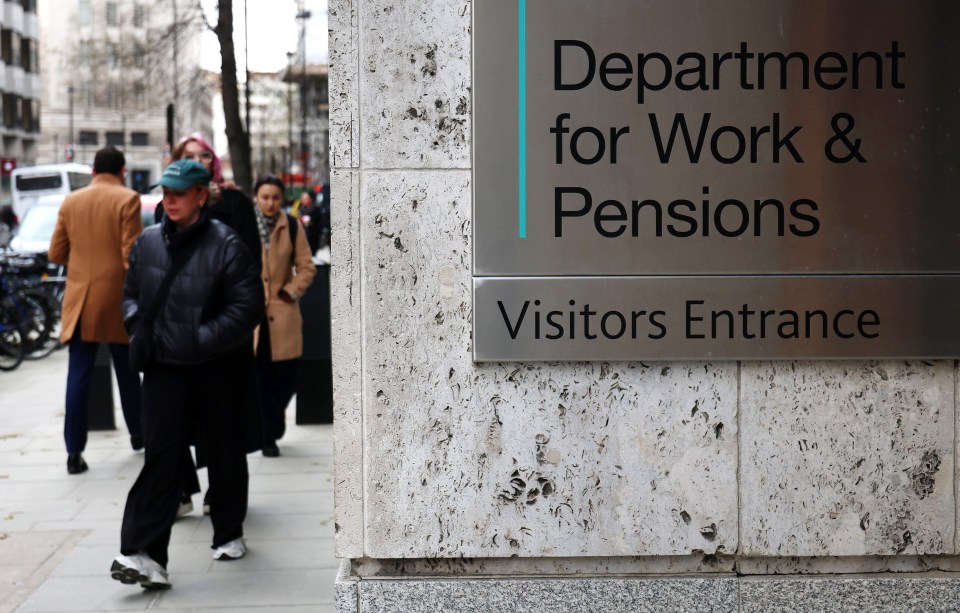HUNDREDS of thousands of people on Universal Credit are set to lose almost £100 per week under Government plans.
The Department for Work and Pensions (DWP) previously announced plans to scrap the health component of Universal Credit for under-22s.
At the moment, the Limited Capability for Work and Work-Related Activity (LCWRA) element for Universal Credit is applied to most adults aged between 16 to 21 if they’re struggling to stay employed due to health issues.
But charity Disability Rights UK is now saying the Government plans will affect almost 110,000 disabled adults.
It says they will lose nearly £100 a week if the changes come into effect.
That equates to almost £400 a month, or £4,800 over the course of a year.
The charity says the move will mostly impact disabled young people who are described as NEET – “Not in Education, Employment or Training” – and are having difficulties getting into the job market.
But it will also affect young people who are in work but are in low-paid or part-time jobs and are using Universal Credit to top up their earnings.
Disability Rights UK says on its website: “The proposed policy will not just impact young disabled people who are NEET, but also many young disabled people who are in education.
“Despite barriers to students claiming UC, it is often possible for those in non-advanced education who have passed the August after their 19th birthday to successfully claim UC as an adult.
“Under the current system, low-income families with a disabled 19-year-old already have to contend with a drop in income of at least £29.25 per week when their child stops being treated as a dependent and starts claiming UC in their own right.
“However, under the Government’s proposal, young disabled people aged under 22 would only receive £73 rather than £170 per week, meaning a much greater drop in household income.”
The Government unveiled a huge benefits shake-up earlier this year as part of plans to save about £5billion a year in welfare payments.
Work and Pensions Secretary Liz Kendall said the current system is failing millions with one in 10 working-age Brits now on sickness or disability benefits.
She said spending on disability benefits has spiralled by £20billion since the pandemic and pledged to fix the “broken” system with a reform package.
Part of the Government’s plans include getting people back into work while protecting the most vulnerable.
Research suggests removing access to the health element of Universal Credit for under-22s will not impact 73% of 16 to 24-year-old Brits who fall into the NEET category.
How much Universal Credit can you get?
TRYING to work out how much Universal Credit you can get can be overwhelming.
There are so many different elements that can affect your claim and it makes the whole process even more complicated.
There are several free calculators that you can use to help you get an estimate, such as Gov.UK, Citizen’s Advice, MoneySavingExpert, StepChange and Turn2Us.
You will need:
- Details of all your income, such as existing benefits, tax credits, earnings from employment and your pensions,
- Details of your partner’s income if you’re married, in a civil partnership or living with someone as a couple. You will be assessed as a couple
- Information on any savings you have,
- How much you pay in council tax per year, and whether you get any discounts, reductions or exemptions,
- Details of your rent or mortgage payments,
- Employment and income information about anyone else living with you, such as grown-up children,
- Details about your carer’s allowance if you receive it.
You’ll need to make sure that the information provided is as accurate as possible to get the truest estimate.
What other benefits changes have been announced?
The Government’s proposed benefits shake-up will see a number of changes come into effect.
One that has gained lots of attention is a crackdown on eligibility, particularly for those claiming the main disability benefit Personal Independence Payments (PIP).
The number of claimants is expected to double by 2030, with the biggest rise among young people and those with mental health conditions.
But from 2026, new claimants will need to score at least four points in one category to qualify as part of a plan to curb the rapid rise in payouts.
These are some of the other changes planned:
- Merging jobseekers’ allowance and employment support allowance, where people who have worked get more than those who have not
- Scrapping the Work Capability Assessment by 2028, with all health payments made via PIP in future
- An above-inflation rise to the standard allowance of Universal Credit, but the highest incapacity payment cut
- A “right to try” scheme that allows jobless Brits to have a go at working without losing their benefits if they cannot manage












